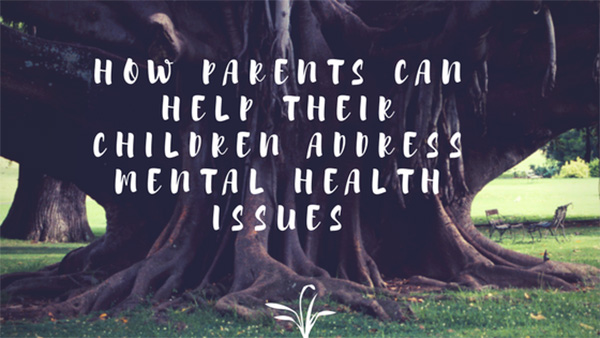Parents want what is best for their kids. Since mental health issues among children are a growing concern, parents have an especially important role in making sure their child’s mental health needs are met. Check out the following ideas for how you can help your child cope with mental health issues.

Why are kids having mental health issues?
Being a kid today is different than it was not that long ago. Constantly changing social pressures, technology, and lack of privacy due to social media all contribute to new difficulties for children. Consider the fact that from the moment a baby is born, their photo is often shared on social media. This lack of privacy has potential to overwhelm and embarrass children. With technology at the forefront of everyone’s lives today, children are expected to own the latest gadgets to keep up with their peers. The price tag on such tech gadgets is high though, so only kids with parents who have the financial means can own the latest and coolest gadgets.
Teens and college kids might be more prone to mental health troubles, like anxiety and depression. Beginning college is a major life change when students often experience some stress. It can trigger some mental health issues, but many students manage to graduate despite the academic and social pressures placed on them.
Signs your child is struggling
Keep an eye out for signs that your child is struggling with their mental health. If your kid is eating or sleeping too much or very little, is irritable, chronically fatigued, or has trouble concentrating then they might be struggling with a mental health concern. Teens and college-aged kids might misuse alcohol or drugs. Your child might be suffering if he or she has difficulty making friends, have poor academic performance, posting troubling things on social media, and is hesitant to return to school. Signs that your toddler might be having mental health issues are hitting and biting others, staying up most of the night, and throwing regular temper tantrums.
If your child has experienced trauma, you might or might not know about it. If a traumatic event occurs when a child is in your care, talk to your child afterward to keep them calm and seek help from a specialist. Know the signs of post-traumatic stress disorder, which include nightmares, flashbacks, denial of the trauma, difficulty concentrating, being easily startled, uncertainty about the future, self-destructiveness, impulsiveness, or depression.
How to help your child
When you notice your teen or college child struggling, you can wait a short period for them to suggest seeking professional help while making subtle hints about the idea first. Often the first step that a college student will take to treat their mental health struggles is to seek counseling offered by the college. Work with them to choose the right professional. Consider a residential treatment program like that offered by Newport Academy for a healing environment with highly trained professionals who care about the wellbeing of your teen.
For younger children, it is often best for parents to use their judgment and make an appointment when they consider it necessary. Children often respond well to play therapy, art therapy, and sand tray therapy to help them express themselves. Teens often get more out of therapy when they talk out their needs – cognitive therapy. A therapist will slowly learn more about your child until they identify the root of the emotional trouble, and help them learn ways to express their emotions in their daily life.
It is important to be alert for suicide risk. College students should contact mental health services or campus police immediately when they know a student is talking or posting online about not being able to handle life and pain anymore; expressing thoughts about wanting to take revenge or to hurt others, isolating themselves socially, seeking ways to commit suicide, and of course talking and posting about wanting to die or planning to commit suicide. Share the suicide prevention phone numbers with your child, so they will have this information available. Even if they are not having mental health struggles themselves, they can use this phone number if they encounter someone who shows signs of mental health issues.
If your child experiences mental health issues or encounters someone who is suffering, make sure that they know how to handle the situation and how to get help. Learn the signs of a child struggling with mental health issues so you can help them quickly so they can be on their way to coping successfully and living a fuller life.






Speak Your Mind